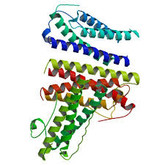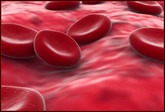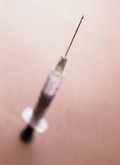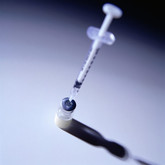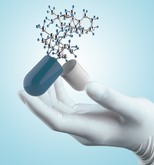Biosimilars/Research
Pegfilgrastim biosimilar Udenyca demonstrated similar immunogenicity to Neulasta
The pegfilgrastim biosimilar Udenyca (pegfilgrastim-cbqv) is a pegylated, long-acting form of filgrastim (granulocyte colony-stimulating factor [G-CSF]). It is approved by the US Food and Drug Administration (FDA) and the European Medicines Agency (EMA) as a biosimilar of the originator pegfilgrastim (Neulasta) for febrile neutropenia in patients receiving myelosuppressive chemotherapy [1, 2].
Therapeutic drug monitoring with infliximab improves disease control
The latest study from the Norwegian Drug Monitoring (NORDRUM) trial [1] shows that proactive therapeutic drug monitoring (TDM) for patients receiving maintenance infliximab therapy improves disease control, compared to treatment without TDM.
WHO revised guidelines for biosimilars: scientific background
A study carried out by Kurki P et al. in 2022 reviewed the current clinical experience and scientific evidence to provide an expert perspective for updating the World Health Organization (WHO) guidelines on evaluation of similar biotherapeutic products (SBPs; also called biosimilars) to increase flexibility and clarity.
Positive phase III results for Samsung Bioepis’ Soliris biosimilar
Samsung Bioepis announced that its biosimilar to Soliris (eculizumab) has comparable efficacy and safety and is bioequivalent to the originator.
Adalimumab biosimilar MSB11022: PK and tolerability of autoinjector versus pre-filled syringe
The antitumour necrosis factor-alpha (anti-TNF‑a) monoclonal antibody adalimumab is used to treat a variety of chronic immune-mediated inflammatory diseases, including rheumatoid arthritis, psoriasis, psoriatic arthritis, juvenile arthritis and inflammatory bowel disease. The biosimilar MSB11022 (Idacio/Kromeya) has demonstrated physicochemical and functional similarity to reference adalimumab (Humira) in the preclinical setting. Further study in the clinical setting has established equivalent pharmacokinetics (PK) and efficacy, and comparable safety and immunogenicity for MSB11022 versus adalimumab. MSB11022 is available in three delivery formats: pre-filled syringe, vial and autoinjector. Offering a choice of devices can address patient needs and potentially improve adherence to therapy. Self-injection via pre-filled syringes may be challenging for some patients, due to issues such as needle phobia, pain-related concerns and arthritis hand pain making self-injection more difficult. The availability of alternative self-injection devices allows patients to select a device that suits their needs.
No trends in biosimilars uptake levels in the US, reveals study
There are no consistent trends in biosimilar uptake by order of market entry, care setting, or pricing, finds a new study published in the Journal of General Internal Medicine [1]. In addition, biosimilar uptake is generally lower than that reported for generic drugs in the US.
The impact of biosimilar insulins on public spending in Brazil
The availability of insulin for the treatment of diabetes mellitus, a chronic disease that increases with age, and its financial sustainability are of general concerns, especially for universal healthcare systems, such as the Brazilian Unified Health System (Sistema Único de Saúde, SUS) [1]. This is why similar biotherapeutic products (produtos bioterapêuticos similares, SBP) can be a cost reduction strategy in improving access to essential supplies for the population. These drugs demand less investment and acquisition cost [2].
Challenges with implementing benefit-sharing programmes for biologicals in Europe
Diverse policies have been implemented across Europe to support the rational prescribing of biologicals. Policies limiting the reimbursement of high-cost pharmaceuticals and applying prescription quotas for ‘best-value’ biologicals (BVB) have often been combined with educational campaigns about biosimilars and with benefit-sharing (gainsharing) initiatives [1, 2].
Successful increase of biosimilar adoption in a large integrated health delivery network
Biologicals have revolutionized patient care across several therapeutic areas but are associated with significantly higher costs to patients and healthcare systems. Biosimilars offer the opportunity to reduce drug spending without compromising patient care. Medication utilization management (UM), a formulary management methodology, can be used to facilitate the adoption of biosimilars. Author Sophia Humphreys describes an innovative and strategic biosimilar adoption programme that was developed and implemented at Providence St Joseph Health [1]. Providence is a large integrated health system including 53 hospitals, 1,085 clinics and an annual drug spend of >US$1.2 billion.
Patient perspectives on biosimilars in a high uptake country
Several surveys have shown that challenges for patient acceptance of biosimilars include patients’ concerns of quality, safety, and efficacy [1-3], however, there has been lacking more in-depth knowledge of the patient perspective and the underlying rationales for such perspective. Therefore and considering Denmark has one of the highest biosimilar uptakes [4], Varma et al. [5] investigated how Danish patients with psoriasis, arthritic diseases, or inflammatory bowel disease (IBD) perceived biosimilars.
